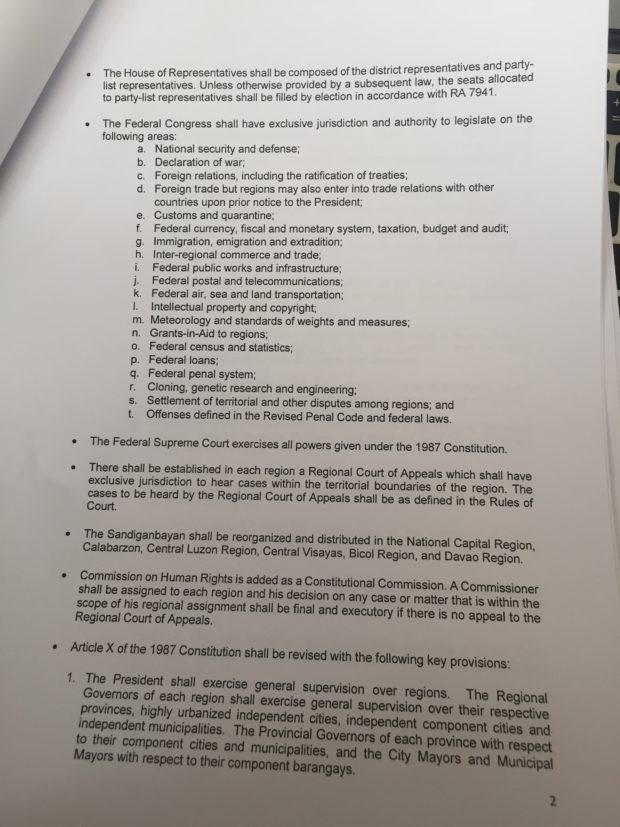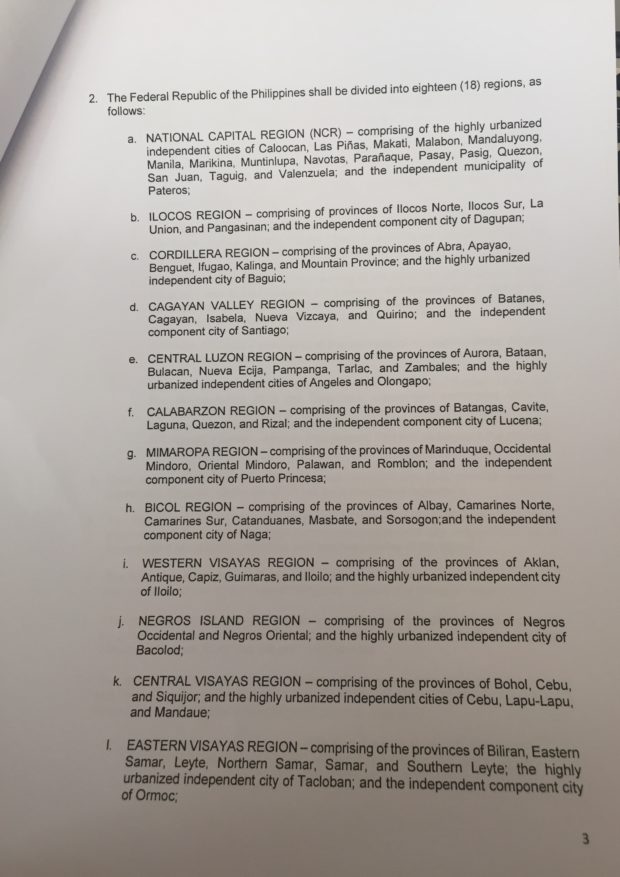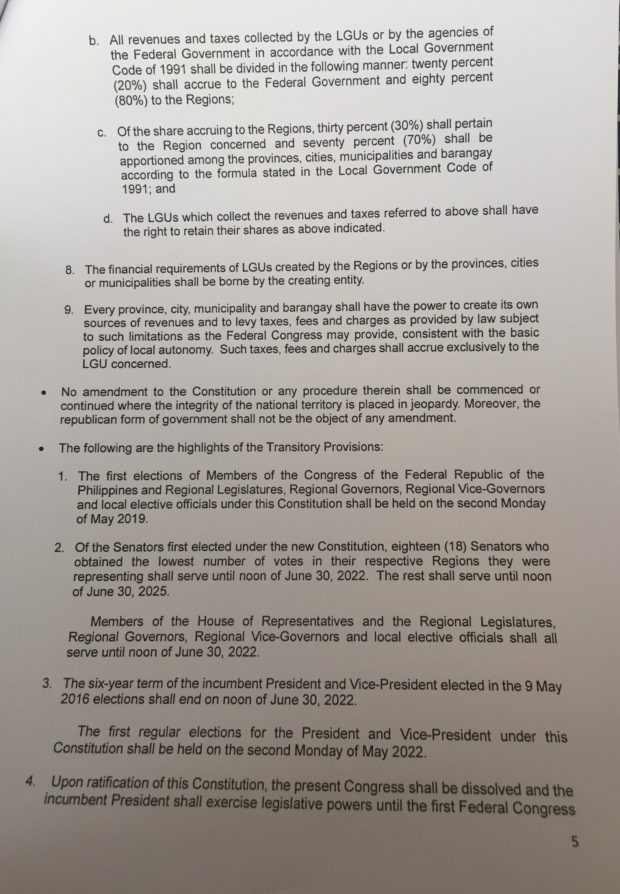LOOK: House tackles draft on PH federal charter
An engineer and a lawyer who are now members of the House of Representatives pitched in on Wednesday their draft for a federal charter that would replace the 1987 Constitution.
During the constitutional amendments committee hearing, ABS Rep. Eugene De Vera and Pampanga Rep. Aurelio Gonzales Jr. presented to the committee a draft of the federal charter attached to Resolution of Both Houses 8, which called on the House and the Senate to take part in a constituent assembly to propose amendments to the charter.
1-Sagip Rep. Rodante Marcoleta said it seems like the two lawmakers just “dreamed up” of the charter and suddenly came up with a draft, questioning if there were motives in the drafting of the federal charter.
“Did you imagine, did you just dream one night, the two of you?” Marcoleta said amid laughter from his colleagues.
De Vera said the members of the House are in the best position to come up with a federal charter that would address the needs of the constituents.
The 1987 Constitution was drafted by the 1986 constitutional commission.
Article continues after this advertisement“Hindi naman kami mayabang pero kami lang talaga gumawa nito. We did not consult anyone,” De Vera said.
Article continues after this advertisementDe Vera, a lawyer, ruled out the need for a constitutional commission when House members can overhaul the charter based on their constituents’ needs.
The lower House opted to constitute itself as a constituent assembly and to tackle the drafting of the new constitution among themselves, without waiting for the President’s appointment of a constitutional commission.
READ: Preparations for federal shift to keep Congress busy next year
“Bakit (kailangan) ng experts sa Constitution kung tayo mismo, kayang kayang gawing ito gampaning ito? Mga experts hindi sila political, mga academe sila. What do they know ano ang pangangailangan ng tao sa grassroots?” De Vera said.
De Vera said this is only a working draft, and the committee can either revoke or adopt it in toto, adding that the two representatives took the initiative to come up with a federal charter to address the call of President Rodrigo Duterte for a shift from unitary to a federal government.
“This is only a draft. This is just a guide. We can consider [it] in toto, we can even disregard it. It’s just a working draft. At least we have something to present as a start,” De Vera said.
Gonzales said his experience as an engineer is a good background to draft a charter just like building a house based on sound engineering.
Asked about their self-interests in the draft charter, De Vera denied having a backer in drafting a federal charter.
“I give you my word. Walang malaking investor, walang malaking financer. Kami lang gumawa nito,” De Vera said.
READ: Con-ass hurdles House Charter change committee
According to the draft charter, the Federal Philippines will be divided into 18 regions, where each region will be governed by a regional governor and will have a regional assembly.
Under the federal set-up, the Senate will be composed of two to six senators per region. The senators will be elected at large of each region.
The composition of the House of Representatives, divided into district and party-list representatives, will not be changed in the Federal Congress of the Federal Republic of the Philippines, De Vera said.
A region with more than 5-8 million inhabitants would have additional one to four senators.
Under the federal constitution, senators who obtained the the lowest number of votes in their respective regions during the first elections would serve for three years only, while the rest of the senators would serve for six years. In the succeeding elections, all senators would serve a full six year term.
A federal Supreme Court also exercises the same powers in the 1987 Constitution.
Under the Federal Constitution, the federal form of government is presidential in form with a bicameral legislature in the first tier, and has a regional government comprising of a regional assembly and component local government units in the provinces, cities, municipalities and barangays in the second tier.
The President continues to have the powers enshrined in the 1987 Constitution.
The committee approved the motion to form separate technical working groups to invite experts and tackle the different articles of the federal charter. The committee eyes to approve the draft federal charter by November, and to field the draft charter in the plenary by January next year.
READ: Congress to convene for charter change next year – Alvarez





